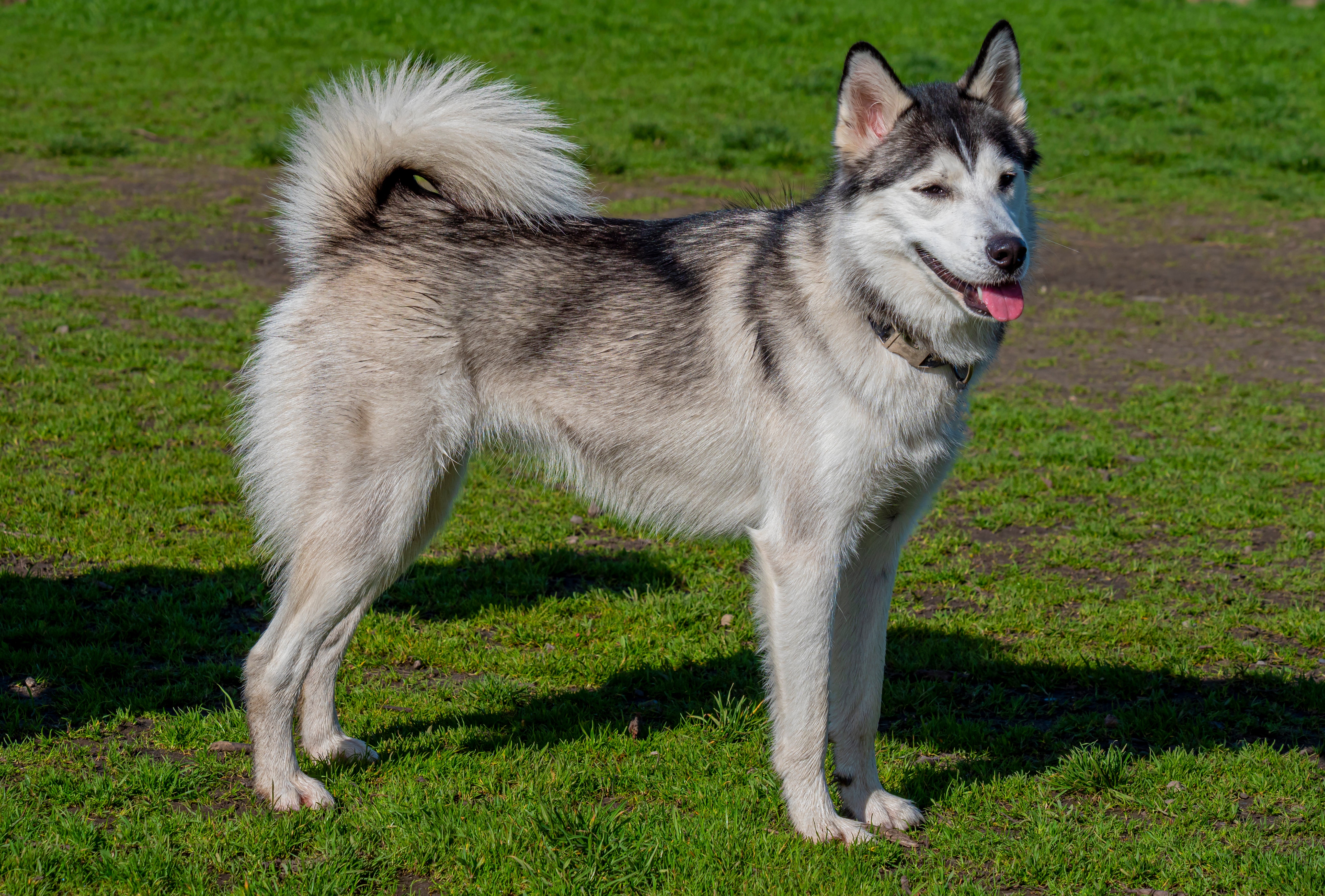Siberian Husky
Siberian Huskies are known for their fluffy coats, piercing eyes, wolf-like good looks, and working strength. They are intelligent, energetic dogs that are always game for an adventure or any activity that allows them to run and burn off steam.
Breed characteristics carousel
Learn More
Need to Know
- Best for experienced owners
- Extra training required
- Enjoys vigorous walks
- Large dog
- Minimal drool
- Requires daily grooming
- Chatty and vocal dog
- Barks and alerts to visitors/anything unusual
- Could have issues with strange dogs but gets along with known dogs
- May need additional training to live with other pets
- May need additional supervision to live with children
- Needs a large yard, either in suburban or rural areas
- Cannot be left alone
- AKC Registered Breed

Personality
Siberian Huskies retain their working spirit even in the most docile environment; they are always ready to be active companions. They are friendly, gentle, and watchful with an independent streak. Though generally quiet, they can occasionally express themselves with joyful howls.
Siberian Huskies can trace their lineage back 3,000 years to Siberia. Indispensable to local people, these sled dogs were selectively bred for speed and endurance, pulling vital loads over vast distances. Word of this "super dog" reached the Americas in the late 19th century.
In 1909, a Husky team dominated an Alaskan sled race, outperforming the larger Malamutes. Following World War II, their service as search and rescue dogs with the U.S. military further solidified their reputation. Today, they're popular worldwide thanks to their esteemed athleticism and friendly personalities.
Husky owners would ideally be familiar with larger Spitz breeds, have ample space inside and out, and lead active lifestyles. These energetic pups need an outlet for their love of running, making them perfect companions for those with an adventurous streak. While big houses aren't essential, secure outdoor access is crucial. Because of their pack mentality, Huskies often do well in multi-dog households.
Siberian Husky dogs require a significant amount of daily exercise in a safe, enclosed area. Huskies have a powerful urge to run and may not respond to commands when loose. To keep them happy and healthy, plan on including opportunities for running. They are energetic escape artists, so high fences are a must, whether that’s at home or at your local dog park.
Siberian Huskies thrive in homes with ample room to roam and expend their energy. A rural environment is best since it offers plenty of space for exercise. Bonus: that space will also minimize any disturbances from their occasional howling.
The Siberian Husky breed is relatively low-maintenance when it comes to grooming. Brushing and combing two to three times a week will keep things under control. Daily grooming sessions are recommended during their shedding seasons.
While formal training might not be their strong suit, socialization, and leash manners are crucial for a Siberian Husky puppy’s success. Mastering leash walking can be a challenge, but with patience and positive reinforcement, it's achievable. Recall training is important for emergencies, but it’s not foolproof. Keep in mind their strong prey drive and be vigilant around smaller animals.
The highly active nature of Siberian Huskies is best for families that can match that energy and who enjoy being outdoors and physically active.
The cost of a Siberian Husky from a breeder is significantly more than the cost of adopting one from a local shelter or rescue. The adoption fee usually covers additional items such as spaying or neutering, vaccines, and microchipping.
Adopting a Siberian Husky
Interested in adopting a Siberian Husky ? Here are answers to some common questions about bringing one of these charming dogs home.
Siberian Huskies are generally not aggressive dogs. However, like any dog, they may bite if they feel scared or cornered. Proper training and socialization can help prevent these situations.
Siberian Huskies can be challenging to train due to their independent streak and short attention span. However, with patience, positive reinforcement training methods, and consistent effort, they can learn commands. Siberian Huskies can be potty trained with consistent routine and positive reinforcement. Using treats or praise during successful potty breaks can help motivate them.

Learn more about feeding and caring for your Siberian Husky on Purina.
Did You Know?
- Siberian Huskies are traditionally used as sled dogs to carry light loads at high speeds over long distances.
- By tucking their tails around their noses and paws, Siberian Huskies create a thermal shield. This helps conserve body heat and protects their vulnerable facial features in cold climates.
- Siberian Huskies played a heroic role in delivering life-saving medicine to Nome, Alaska. During a diphtheria outbreak, the only antitoxin was hundreds of miles away in Anchorage. A dog sled relay, led by courageous mushers and their incredible Siberian H
- Siberian Husky howls can carry up to 10 miles.

